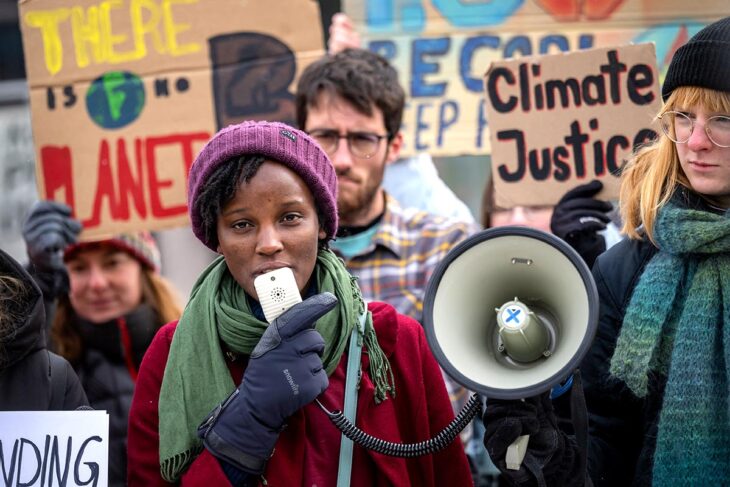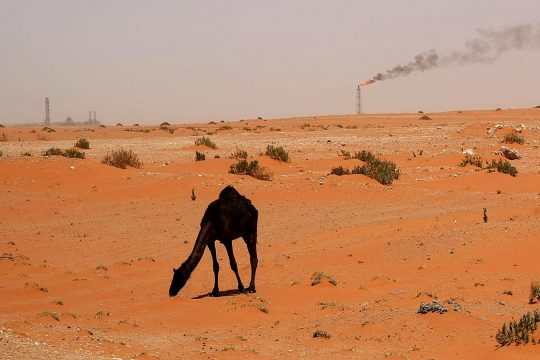February 2023 was the month of two legal defeats in climate matters. The first concerns German car maker Volkswagen. In a February 14 judgment in line with two others in favour of Mercedes and BMW, the Braunschweig regional court rejected a request from Greenpeace for a ban on the sale of thermal vehicles from 2030 and an order that the company cut greenhouse gas emissions by 65% (compared to 2018).
The other concerns French company Total Energies. In two rulings on February 28, 2023, the Paris judicial court declared inadmissible the claims filed by six environmental and human rights associations (Friends of the Earth, Survie and four Ugandan NGOs). The subject was the Eacop and Tilenga oil development megaproject carried out by Total Energies' subsidiaries in Uganda and Tanzania, with construction of a 1,500 km pipeline and 400 wells located partly in a national park, emitting 30 million tons of greenhouse gases per year.
Far from being insignificant, these decisions raise the following question: are lawsuits against multinationals to fight against global warming really useful? Do they advance the climate cause?
Reducing greenhouse gas emissions
The proliferation of "climate lawsuits" around the world attests to their success. Born in the United States about 15 years ago, these initiatives numbering in the thousands mainly targeted States but are now increasingly targeting multinationals which, through their activities and those of their subsidiaries, are major emitters of greenhouse gases.
The aim is clear: to obtain court orders requiring them to reduce their emissions.
While the carbon majors like coal producers (American Electric Power, RWE...) and oil producers (Exxon Mobil, BP, Shell, Total Energies...) are targeted most, it is now the turn of large food distribution groups (Casino in France), car manufacturers (Volkswagen, BMW, Mercedes) and banks (BNP Paribas) to be put in the dock alongside company directors (such as those of Shell in the UK).
Just one victory, against Shell in the Netherlands
But out of about 50 cases in the world, only one has won a conviction by the judges (and only in the trial court). This is the case of Shell, which, following legal action by environmental protection association Milieudefensie, was ordered by the court in The Hague on May 26, 2021, to reduce greenhouse gas emissions by 45% before the end of 2030 (compared to 2019).
Certainly, hope is not lost for NGOs. A number of cases are still awaiting trial or retrial, and new cases are emerging with new criticisms of multinationals' climate policies and diversification of the legal grounds for action.
Multiple reasons for case dismissal
However, the arguments developed by the defendants and judges during the trials do not make things easy. Depending on the law applicable, they point to associations’ lack of interest in acting, the judge’s lack of competence to take the case, the limits of his powers, or the legality of the defendant's behaviour. This shows that a trial - whose function is to settle a dispute and, at its end, to restore the violated right - is not necessarily the way to win.
Worse still, in the event of a victory it is not certain that the conviction will be followed by effective action (or even impact if it remains isolated and concerns only one emitter among many), plus the trial is long and the conviction could come too late in view of the urgency of the climate issue.
Finally, we cannot ignore the possible counter-productive effects, some of which we can already see, such as the relocation of parent companies to countries that are supposedly more protective of multinationals (following the example of the Shell group, now based in London) and the legislator’s intervention in their favour (e.g. the European Union's proposed directive on the duty of care of parent companies, which excludes banks from its scope).
Favouring dialogue with multinationals?
So it is tempting to conclude that climate proceedings are pointless and to note the Paris court’s February 28, 2023 judgment in the Total Energies case, which reproaches NGOs for not having given the company proper legal notice to meet its obligations and invites them to favour the path of dialogue and amicable resolution.
However, this would be to ignore two decisive elements: the judge's ability to render innovative decisions, and the impact of these legal actions on the media.
Judges have shown in the past a capacity to render innovative decisions likely to respond to the needs of the public.
In the nineteenth century, they highlighted the need to fight against industrial nuisances, by creating the concept of abnormal neighbourhood disturbance, and at the beginning of the 21st century that of better repairing environmental damage (as in the Erika case).
Judges could therefore, as the administrative judge did recently in the "Affaire du siècle" against the French State, impose on large companies a duty to fight against global warming and sanction them if they ignore it.
Battle in the media
There is also the media coverage of these trials. Climate trials find an important echo in the media, and therefore in the general public.
Following the proceedings closely, the media relay the scientific expertise and legal arguments developed by NGOs, detailing the figures involved and the environmental consequences.
Using the activist vocabulary served up by NGOs ("climate bomb", "financier of climate chaos", "historic trial", "enormous responsibility"), they provide the opportunity for NGOs to accuse those “responsible” without even waiting for a judgment, and sometimes by just threatening a trial in the media!
climate justice: A long-term struggle
Certainly less visible and direct than a judicial verdict, the usefulness of media coverage can only be appreciated with time. But there are reasons to hope that regular, in-depth coverage can rally the public to the cause, put pressure on companies and politicians so that they boost their measures to fight against global warming (or at least that they do not lower their guard).
And if NGOs readjust their communication (in face of defeats, criticize the existing law and plead for the judicial system to give better consideration to the climate challenge), they may convince judges of the role they can play in societal change and legislators of the need to propose new judicial tools to this end.
This article is republished from The Conversation under a Creative Commons licence. Read the original article.







